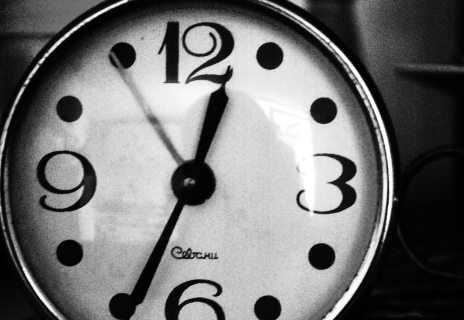The Mystique of Midnight Prayers: Exploring the Allure of Silent Communion
In the quiet embrace of the night, when the world is shrouded in darkness and stillness prevails, many individuals find solace in turning their thoughts inward and engaging in a practice as ancient as humanity itself: prayer. The act of praying in the mind during the night, particularly at midnight, holds a distinct allure for people across various cultures and religions. This mystical tradition has been passed down through generations, transcending time and boundaries, and continues to captivate the hearts and minds of countless believers. The reasons behind this preference are multifaceted, blending elements of spirituality, introspection, and a profound connection to the universe.
1. The Veil of Silence: The stillness of the night brings with it a unique sense of tranquility and seclusion. The hustle and bustle of daily life subsides, allowing individuals to detach from their worldly concerns and delve into their innermost thoughts. In this cocoon of silence, midnight prayers are often believed to carry a more profound impact, as they allow individuals to connect with their spirituality without the distractions that accompany daytime activities. The sense of intimacy with the divine is amplified in the stillness of the night, prompting individuals to embrace this sacred time for reflection and connection.
2. Spiritual Intimacy: The night has long been associated with a deeper connection to the spiritual realm. In many faiths and belief systems, the veil between the physical and spiritual worlds is believed to be thinner during the night, making it an ideal time for communion with the divine. This belief is rooted in ancient traditions and has led people to cultivate midnight prayers as a means of drawing closer to their chosen deity or source of spiritual guidance.
3. A Journey Inward: Midnight prayers often provide an opportunity for introspection and self-examination. The quiet darkness of the night allows individuals to focus their attention inward, reflecting on their thoughts, actions, and intentions. This self-examination can lead to a deeper understanding of one’s beliefs, values, and purpose. By engaging in prayer during this time, individuals can engage in a profound dialogue with themselves and their beliefs, seeking clarity and guidance in the stillness of the night.
4. Symbolism and Ritual: Midnight holds a special symbolism in various cultures and religions. In Christianity, for example, midnight is often associated with moments of profound significance, such as the birth of Jesus Christ. Similarly, in Islam, the nightly Tahajjud prayers are believed to have a special connection to Allah, and many believers wake during the night to engage in these prayers. The rituals associated with midnight prayers add an element of sacredness and tradition to the practice, making it an integral part of the believer’s spiritual journey.
5. Escape from the Mundane: For many, the nighttime provides an escape from the demands and responsibilities of daily life. The stillness of the night offers a respite from the noise and chaos, allowing individuals to distance themselves from their worries and anxieties. Engaging in prayer during this time offers a form of mental and emotional relief, creating a space where one can seek solace, express gratitude, and find strength to face the challenges that lie ahead.
6. Connection to the Cosmos: The vast expanse of the night sky has often invoked feelings of awe and wonder. As individuals look up at the stars and contemplate the universe’s mysteries, they are reminded of their place in the grand scheme of things. Midnight prayers offer a unique opportunity to connect with the cosmos and experience a sense of unity with the universe. This connection can foster feelings of humility, interconnectedness, and a greater understanding of the divine order.
7. An Act of Devotion: Engaging in midnight prayers can be seen as a testament to one’s devotion and commitment to their spiritual beliefs. The act of waking up at an unconventional hour to engage in silent communion reflects a deep dedication to nurturing one’s spirituality. This act of sacrifice and dedication can foster a sense of spiritual growth and fulfillment, further reinforcing the preference for nighttime prayers.
In conclusion, the practice of praying in the mind at midnight holds a magnetic appeal for countless individuals across cultures and belief systems. The reasons behind this preference are as diverse as the people who engage in it, ranging from the tranquility of the night to the symbolism and ritual that accompany midnight prayers. In a world that often feels fast-paced and noisy, the allure of connecting with the divine in the stillness of the night remains a powerful and timeless tradition. As individuals continue to seek meaning, solace, and a deeper connection to their spirituality, the mystique of midnight prayers is likely to persist, continuing to inspire and transform lives.
